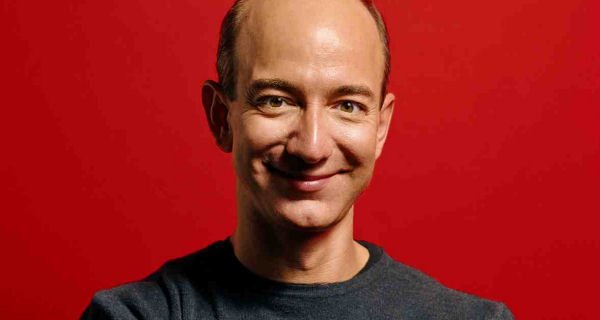Miguel Amaral Professor at Instituto Superior Tecnico, University of Lisbon is the new guest in this new video interview series hosted by citiesabc founder Dinis Guarda. Both expert talk about the current business and entrepreneurship ecosystem worldwide while highlighting the importance of Digital transformation and the Frugal Innovation concept. Also important is the role of academia and education in the entrepreneurs of tomorrow.
Miguel Amaral is a tenured Assistant Professor at the Instituto Superior Técnico – Universidade de Lisboa at the Engineering and Management Department and as a Research Associate at the Center for Innovation, Technology and Policy Research, IN+/IST. An expert in the areas of Technological Change, Entrepreneurial Dynamics and Social Innovation,
Miguel Amaral and citiesabc founder Dinis Guarda talk about how digital transformation is changing the business environment while highlighting innovation as a force for social change. Frugal innovation, a not-so-well-known concept is critical to achieve innovation, according to the academic. Frugal innovations mainly originated in the context of emerging markets. The main idea was to develop products and services that fit these markets’ special needs and requirements and that were cheap enough to give non-affluent customers opportunities for consumption.
Interview Focus
1. Personal profile
2. Academic background and professional career
3. Entrepreneurship background – Social Innovation Lab
4. Companies and social impact Social entrepreneurship concept Education: from theory to practice
5. Center for Innovation, Technology and Policy Research, IN+/IST research focus
6. MIT connection and DLab Frugal innovation India case studies and current research projects
Key Takeaways
· About technology, innovation and the collaboration between academia and companies. “Collaboration is critical between public and private sector, including schools and universities of course. However is not that easy to bring them all together as they have different needs and goals. Academics need time to research and innovate while companies normally are in need of faster solutions. But when this collaboration actually happen and both players are aligned, it brings the perfect synergy.”
· Differences between the US and Europe, especially from his experience when he was at the MIT. “The overall idea is that in the US everything is private, including investigations, research, etc while in Europe the trend is that all of this comes from the public sector. Spending and funding in research follows these rules too. Here lies, hence, two different approaches to funding innovation and academics.”
· About entrepreneurship and success. “I don’t really believe in formulas that can always work for every entrepreneur and business and take them to become the next unicorn. It’s very rare, in fact, that companies grow a lot in a short period of time. But high growth companies are important from a decision making perspective and they drive jobs and boost different aspects of the economy.”
· About frugal innovation. “Frugal innovations means using the minimum resources to get the maximum innovation. The most important aspect is optimization. It is something that is well linked with universities and students-led research and entrepreneurship. Universities can achieve much with little resources.
People usually link frugal innovation with low tech and underemployment. But, on the contrary, there is much more innovation that can be achieved when resources are scarce as it boosts creative solutions and sustainability, while normally focusing on social impact solutions.”
· About COVID-19 and the future. “We are still going through this problem and its impact is going to last for 3 or 4 years. It’s sad and its impact on the economy and people is going to be massive. However, it is also amazing how people are innovating and adapting so quickly to this adverse scenario. We can see that through the adoption of technological solutions to continue working or with new ways of entrepreneurship.
For the future, I see episodic formulas with periods of going out and periods of more severe lockdowns. Policy makers are now crucial to find the right balance between economic paralysis and healthcare.
Most importantly, this crisis is highlighting the importance of frugal innovation, social impact, circular economy, sustainability, etc. All of these promote new levels of collaboration in a positive way and help us overcome this pandemic together.”
Miguel Amaral Biography
Miguel Amaral holds a PhD in Industrial Engineering and Management from the University of Lisbon, an MSc in Engineering Policy and Technology Management, a degree in Economics and an Advanced Diploma in Communications Science. Miguel presently works as a tenured Assistant Professor at the Instituto Superior Técnico – Universidade de Lisboa at the Engineering and Management Department and as a Research Associate at the Center for Innovation, Technology and Policy Research, IN+/IST. His research interests and teaching focus mainly on Entrepreneurship, Innovation, Industrial Dynamics and Human Capital.
Sources/Links
https://www.linkedin.com/in/diasamaral/
https://www.researchgate.net/profile/Miguel_Amaral2
http://in3.dem.ist.utl.pt/team/members/miguel-amaral/
Books:
Entrepreneurship and Growth in Local, Regional and National Economies
Empirical Entrepreneurship in Europe

Hernaldo Turrillo is a writer and author specialised in innovation, AI, DLT, SMEs, trading, investing and new trends in technology and business. He has been working for ztudium group since 2017. He is the editor of openbusinesscouncil.org, tradersdna.com, hedgethink.com, and writes regularly for intelligenthq.com, socialmediacouncil.eu. Hernaldo was born in Spain and finally settled in London, United Kingdom, after a few years of personal growth. Hernaldo finished his Journalism bachelor degree in the University of Seville, Spain, and began working as reporter in the newspaper, Europa Sur, writing about Politics and Society. He also worked as community manager and marketing advisor in Los Barrios, Spain. Innovation, technology, politics and economy are his main interests, with special focus on new trends and ethical projects. He enjoys finding himself getting lost in words, explaining what he understands from the world and helping others. Besides a journalist, he is also a thinker and proactive in digital transformation strategies. Knowledge and ideas have no limits.





























